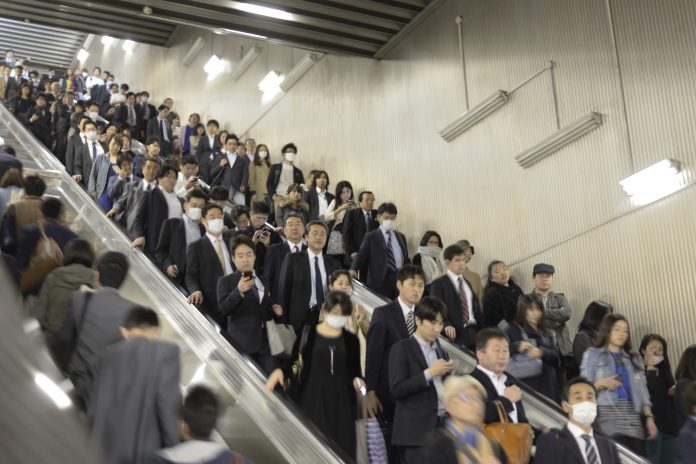Having a work-life balance is a growing priority for many workers. Yet in some parts of Asia, a six-day work week is still the norm. That’s because “hard work is highly associated with success,” said James Root, partner and co-chairman at Bain Futures, a think tank at the consulting firm Bain & Company. “Asia is home to some countries with famously long working hours — South Korea, China and Japan, for example,” said Root. Yet, “firms all over the world, including Asia, are constantly looking for ways to make [offices] more fulfilling places to work.”
Root mentioned half-day Fridays, unlimited vacation time, work from home options, generous maternity and paternity leave and re-skilling allowances. But workers are now showing interest in another workplace trend — the four-day work week. The goal is to grant workers longer weekends, while keeping their productivity and pay the same, in what could be a win-win for workers and companies alike.
Japan is known for having a brutal working culture with long work hours. Employees can be expected to prioritize their careers over everything else in their lives. There’s even a term, “karoshi,” which translates to “death by overwork.” Covid-19 put the country’s highly rigid work environment back in the spotlight. After Japanese businesses switched to flexible hours and remote working in 2020, they began analyzing how these changes affected employee happiness. “The well-being of our employees is a priority, and it is important that we communicate and promote an understanding of this purpose,” said Panasonic spokesperson Airi Minobe by email.
Panasonic announced plans in January to introduce an optional four-day work week to promote a healthier work-life balance for its employees. The change, however, isn’t expected to be implemented “until April 2023 at the earliest,” said Minobe. In 2019, Microsoft Japan tested a four-day work week. Though overall work hours decreased, worker pay stayed the same. Moreover, staff productivity increased by almost 40%, the company reported.
Employees from Singapore, Vietnam, Thailand, the Philippines and Indonesia are also keen on adopting a four-day work week, according to a survey published in February by the research firm Milieu. More than three in four Singaporeans (76%) expressed great interest in jobs that provided three-day weekends. “In mature economies like Singapore, it starts to become about the quality of life and what work means,” said Jaya Dass, managing director at recruitment agency Randstad Singapore. Many employees in Singapore do not want a life in which they live to work, but they aspire to “have a life and work to maintain it,” she said. Having a work-life balance, good salary and benefits are the most valuable aspects of a job to employees in the city-state, according to a 2021 report by Randstad. Dass said Singaporean employees are no longer prepared to give up their personal lives for their careers. But because of the high cost of living in the city-state, many would not agree to scaled-back hours if it means having to accept a salary cut.
Not all Southeast Asian workers were as enthusiastic about shorter work weeks. Only 48% of Malaysians were highly interested in the idea, and another 41% were lukewarm about it, according to Milieu’s survey. Myanmar and Cambodia, where many workers hold blue-collar jobs, showed even less interest, said Dass in an online interview. The desire for work-life balance in these these countries is lower because, in these economies, longer hours often translate to more money, she said. In developing countries, employees often want to work as hard as they can, said Dass. The mentality is: “If I have to die working, I will do it. That means I can make my money. I can buy my property. I can provide my family a better life,” she said.
Following Iceland and Spain, whose governments have been experimenting with reduced working hours since 2019 and 2021 respectively, Belgium is the latest country to announce that workers will soon be entitled to a four-day work week. Belgium’s program, which is starting as a trial, requires employees to work the same number of hours in four days as they previously did in five. Workers are also said to be allowed to ignore after-hours work messages without facing consequences from their bosses. The United Kingdom in January announced the launch of a six-month four-day work week trial set to begin in June. The initiative aims to allow employees of companies that have signed up for the program to work 32 hours per week while leaving their salaries and benefits unchanged.
CNBC























